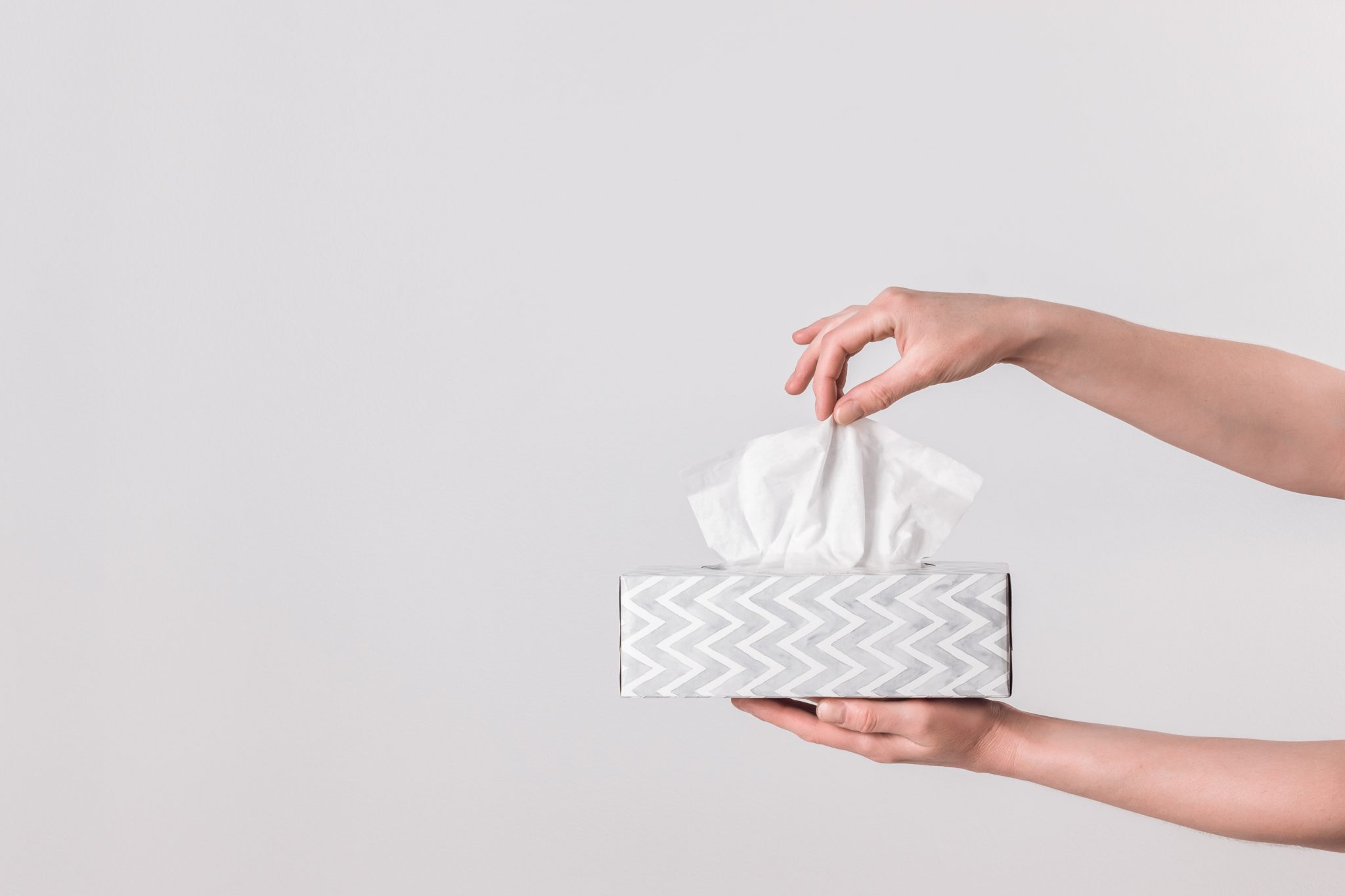Whether we like to admit it or not, cold season is upon us. Finally, the weather is cooler, but with a change in the air often comes the ever-aggravating sniffly nose, sore throat and achy spells that viciously run through our bodies.
The worst part about colds is that they always seem to plague us at the most inconvenient times, and we find ourselves desperately trying to stop them, even after they’ve reached our systems. We rush to the store for cough syrup, fix a hot bowl of chicken noodle soup and go through so many steps just to feel better. But what if there was an actual cure for the common cold? Well, it turns out we may be getting closer to finding one.
The Power of a Gene
A recent study published in Nature Microbiology, an online, peer-reviewed journal, suggests removing the gene that assists in spreading viruses may stop the common cold from spreading. This is a different approach than what we are used to when we visit the doctor, who aims to attack the virus. So far, scientists have experimented on human lungs, where rhinoviruses can easily spread, and mice.
During the study, the researchers used a gene-editing technique called CRISPR to manipulate DNA and construct a “library of human cells,” according to Science News. In this process, they infected the cells with viruses that contribute to colds and neurological diseases and ultimately found SETD3 to be the key protein that assists in the viral takeover of human cells. Their goal was to discover which human proteins interacted with viral components. SETD3’s role in viral infections, according to Science News, was a complete surprise.
After their discovery, the researchers injected viruses into mice without the SETD3 gene, and the mice did not get sick. Human lung cells, it turns out, also stayed healthy without the presence of SETD3.
What does this mean for future common cold treatment?
Because this research is so new, there is not enough information to conclude if this could actually lead to a “cure” for the common cold.
Furthermore, future research will focus on determining whether or not removal of the gene and its protein would cause other problems in the body.
The key question to answer is: would disabling the SETD3 protein be safer and more effective than attacking the virus head-on? Jan Carette, a key scientist in the study, says this is an excellent target, but that drug development “takes time.” Researchers also want to determine what other, if any, diseases they could fight with a gene-removal method. It will be a delicate, strategical process to find out.
But it’s good to know researchers are on our side when it comes to fighting the common cold. And with this good news, you can rest easy knowing the future may hold a solution for your itchy throat that seems to sneak up on you once the weather changes. But for now, go ahead and grab some cold medicine and rest up because there is no over-the-counter solution with this method just yet.
What You Can Do to Prevent a Cold in the Meantime
Avoiding the common cold may not be as difficult as you may think. The Centers for Disease Control and Prevention (CDC) is a great resource to follow through the colder months, and they outline clear tips for preventing the development of the common cold online. Here are some ways to stay healthy this season:
Eat Healthy Foods
Try to eat three proper meals a day that include fruits and vegetables, which include essential nutrients and vitamins. When you skip meals or replace healthy foods with junk food, you lose access to crucial nutrition. Your body will feel and look better when you eat clean.
Hydrate
Aim to drink 8 glasses of 8 fluid ounces of water per day. If this sounds like a challenge, try adding a calorie-free flavor to your water bottle. If you spread out your water intake evenly throughout the day, your body will feel less prone to developing headaches due to dehydration. Plus, your skin will appear healthier, too.
Wash Your Hands Frequently
Wash your hands with soap and hot water frequently to avoid germs at work, school and home. It’s safe to keep a bottle of hand sanitizer on your desk at work during flu season.
Avoid the Infected
If you know someone who is sick, try to maintain a healthy distance. You don’t want to get too close to someone who is infected with a virus or the flu. This may also mean washing your hands more pften.
Sleep
Sleep is essential in everyday health, but also in preventing the development of illness. If you have a difficult time falling asleep at night, try reducing your caffeine intake or drinking a hot cup of chamomile tea before bed. Waking up refreshed from a full eight hours of rest will be a great starting point for living a healthy life.



